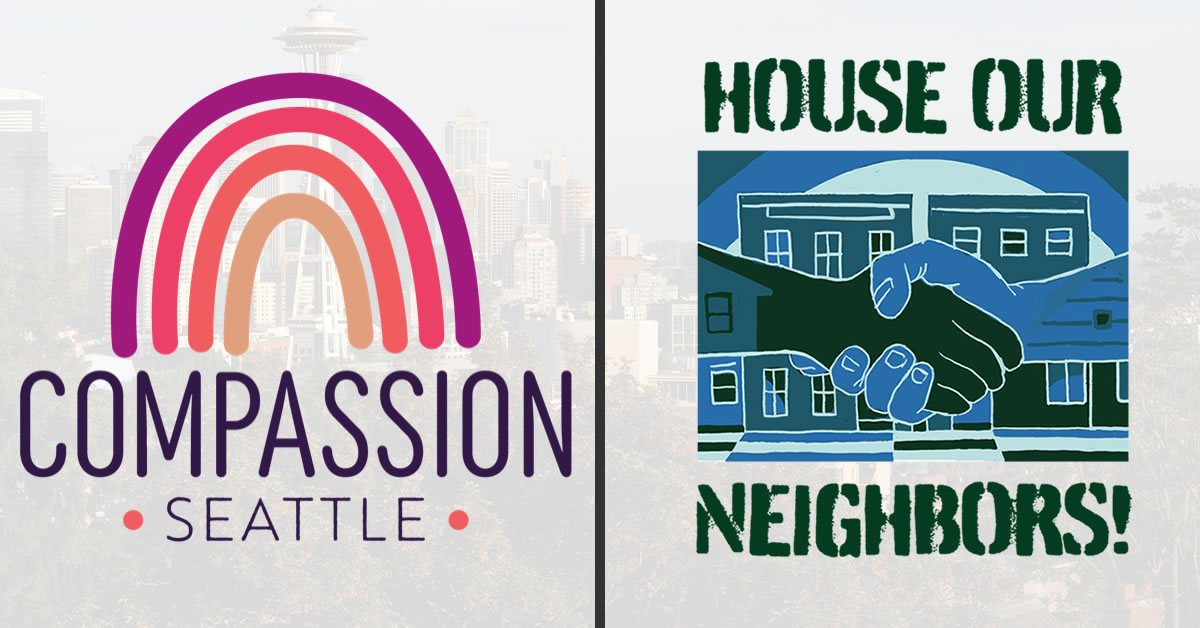Barring a successful appeal — and it doesn’t sound like there will be one — people in Seattle will not be getting a chance to vote on a charter amendment that would alter the city’s plan of government to add new directives regarding the city’s obligations with respect to homelessness this autumn.
That’s because King County Superior Court Judge Catherine Shaffer ruled this afternoon that Charter Amendment 29 — backed by a coalition dubbed Compassion Seattle — exceeds the scope of the local initiative power and therefore is not a properly crafted change to the city’s plan of government.
“It cannot move forward,” Shaffer decreed in a ruling from the bench.
(A written opinion is expected by early next week.)
Shaffer’s ruling came in response to a lawsuit filed earlier this month by the American Civil Liberties Union, the Transit Riders Union, and the Seattle/King County Coalition on Homelessness, which contended that CA 29 ought to be removed from the citywide ballot.
In a statement, Compassion Seattle indicated it did not plan to appeal to the Washington State Supreme Court, though it didn’t like Shaffer’s ruling.
“While we are gratified that Judge Shaffer said that she would have voted for Charter Amendment 29 if given that option, we strongly disagree with her ruling today denying Seattle voters the opportunity to have their voices heard on the number one issue facing our city,” the statement said.
“This ruling means the only way the public can change the city’s current approach to homelessness is to change who is in charge at city hall. An appeal of the judge’s ruling would not happen in time for the election.”
“However, we urge the public not to give up the fight. We can still make our voices heard in the elections for Mayor, City Council, and City Attorney. In each race, the difference between the candidates is defined by who supports what the Charter Amendment was attempting to accomplish and who does not.”
NPI’s July 2021 survey of Seattle voters found strong support for Charter Amendment 29, with 61% of likely August 2021 voters expressing support for the measure and just 23% opposed. Those numbers suggested that Compassion Seattle was in a strong position heading into the autumn campaign.
But now there won’t be a campaign at all.
House Our Neighbors, the opposition coalition, celebrated the demise of Charter Amendment 29 on social networking platforms, delightedly tweeting “No appeal, baby!” and retweeting a brief message of congratulations from city council candidate Nikkita Oliver, a vocal opponent of Charter Amendment 29.
House Our Neighbors had been gearing up to mount a credible no campaign that faced the difficulty of bringing support for CA 29 down from the sixties (as measured by our July polling) to under fifty percent. But now they won’t have to. Victory has come early with Judge Shaffer’s ruling.
When the lawsuit was filed, I assessed that its chances of success were “good to excellent” because the plaintiffs had case law on their side.
Having closely followed litigation surrounding ballot measures in Washington for over twenty years, I rate the plaintiffs’ chances of getting a favorable verdict as good to excellent. They have precedent working for them. I have no doubt Compassion Seattle will be well represented, and will make the best, most effective arguments they can, but the body of case law is simply not on their side.
“Local initiatives,” I explained, “often fall victim to scope challenges, whether those are brought by governments or measure opponents.”
That’s exactly what happened here.
Other observers had a very different reaction to the filing of the lawsuit against Charter Amendment 29, suggesting that it was a longshot.
Kevin Schofield, who writes Seattle City Council (SCC) Insight and closely tracks city politics, was not impressed with the plaintiffs’ arguments. After examining the different prongs of the lawsuit, Schofield concluded in an August 11th post: “In all, most of the legal arguments laid out by the plaintiffs seem weak.”
Missing from Schofield’s analysis, however, was a discussion of the relevant case law in Washington State concerning local initiatives. It was precisely that body of case law that led me to draw the opposite conclusion.
As many Cascadia Advocate readers likely know, in any legal challenge, case law is of vital importance, because courts follow the doctrine of stare decisis, which basically means to stick with precedent. (Stare decisis is Latin for “to stand in the-things-that-have-been-decided”). In this lawsuit, the plaintiffs had plenty of examples they could cite for Judge Shaffer of other measures being thrown off the ballot because they exceeded the scope of the local initiative power.
All they had to do to get a favorable ruling was convince the judge that CA 29 ran afoul of some of the same limitations that have led to the demise of so many other local measures around the state… and they were able to do that. The local initiative power is much, much narrower than the statewide initiative power, so it’s not difficult to end up with problematic provisions in a measure like CA 29.
While courts generally don’t entertain preelection legal challenges to statewide initiatives, they will readily invalidate a local initiative on scope grounds.
When Judge Shaffer’s written ruling is available, I will update this post with an embedded copy of the decision. That’s when we’ll formally get her rationale.

